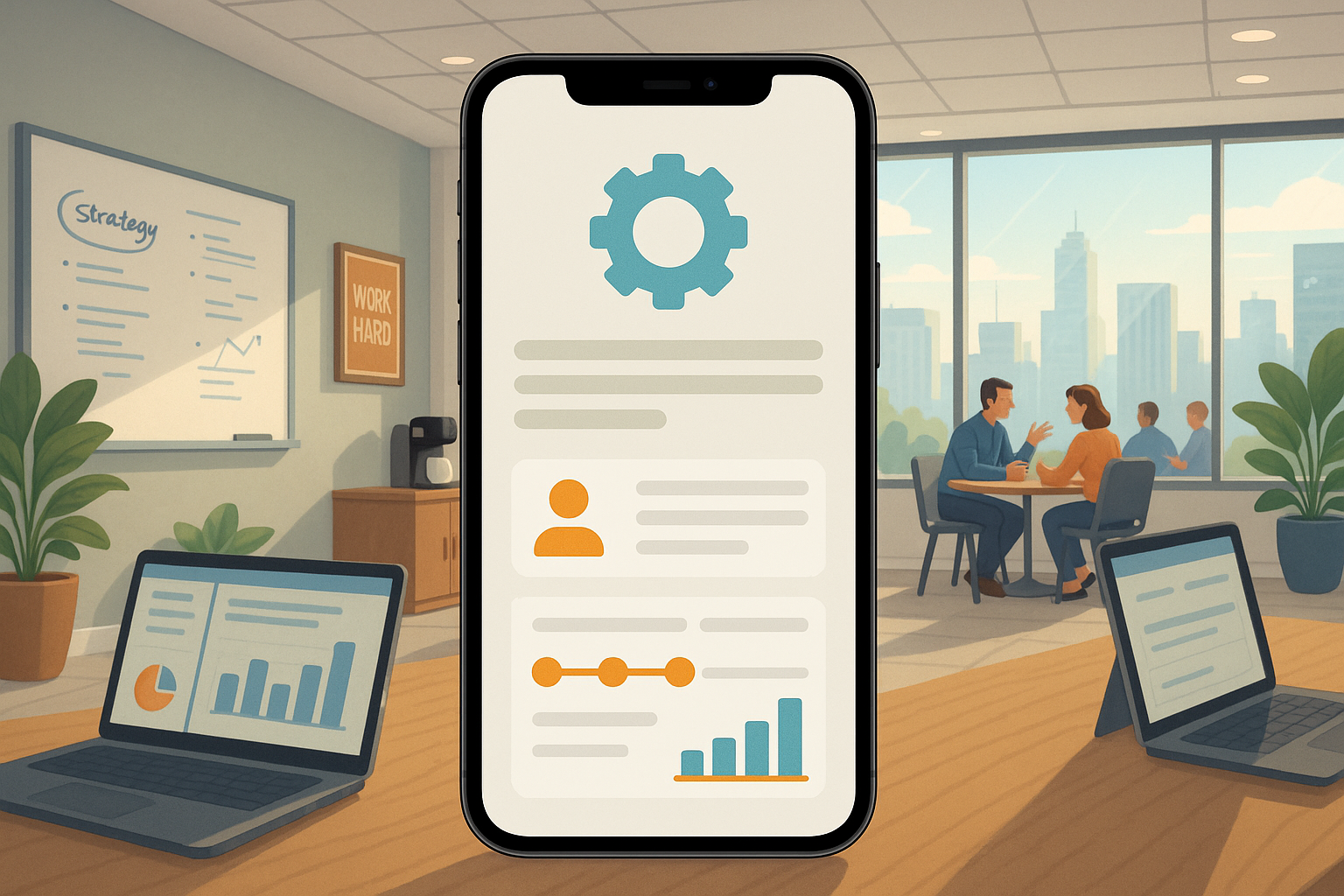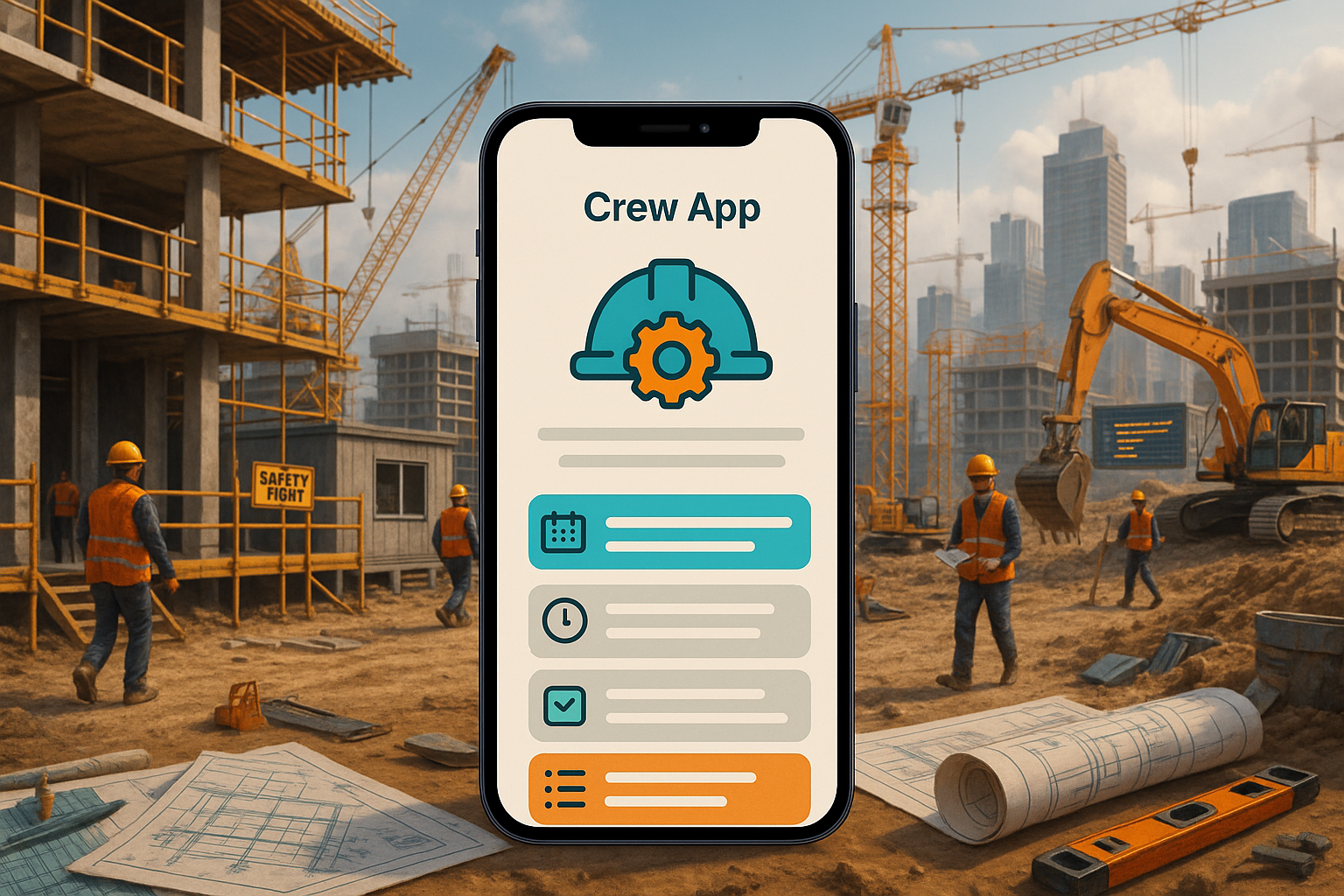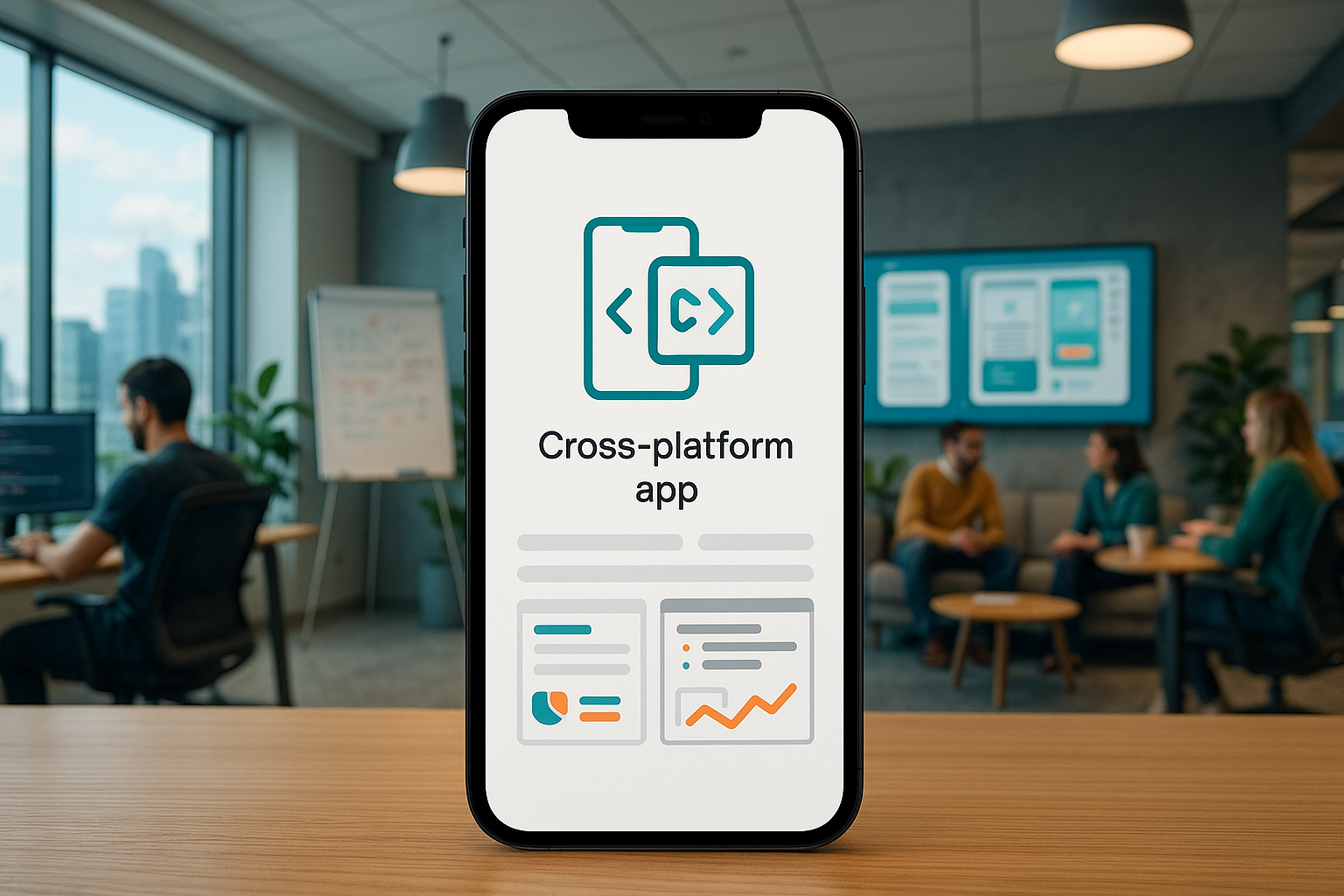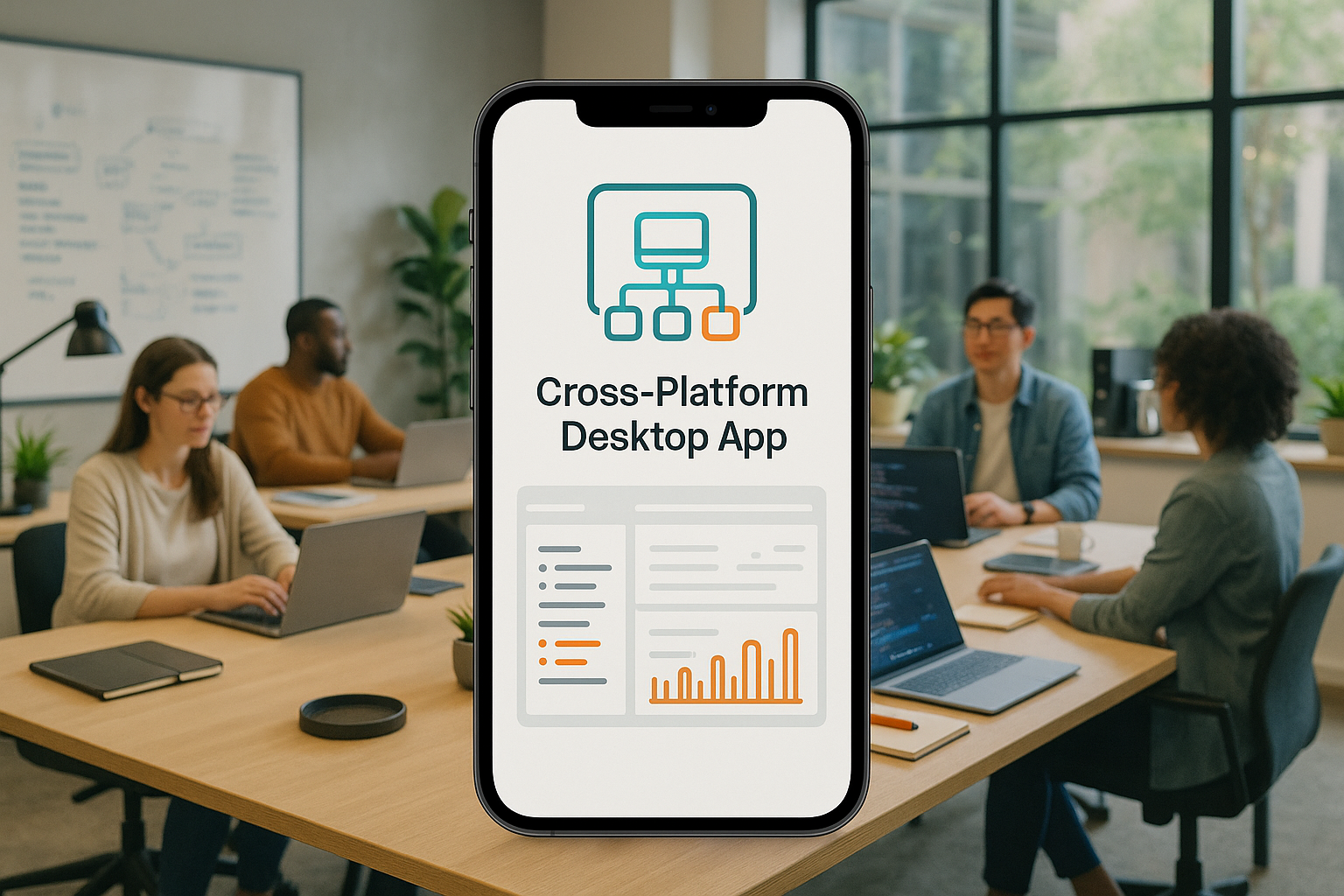Introduction: The Challenge and Opportunity of Custom CRM Development
In today’s competitive landscape, managing customer relationships effectively is not just an advantage; it’s a necessity. A Customer Relationship Management (CRM) system is the backbone of sales, marketing, and service operations, providing a unified view of every customer interaction. While off-the-shelf solutions exist, many businesses find they need a tool tailored precisely to their unique workflows, leading them to consider building a custom CRM app.
However, this path is fraught with significant challenges. Building a custom CRM from scratch is often a costly, inefficient, and resource-draining endeavor that can distract from a company’s core business functions. It involves far more than just writing code; it requires deep expertise in software architecture, UI/UX design, data security, and ongoing maintenance—a journey that can lead to delayed deployment and unforeseen expenses.
This comprehensive guide will navigate the complex world of CRM app development. We will explore what a CRM app truly entails, dissect the substantial difficulties of building one in-house, and outline the different types of CRM systems you can build. Furthermore, we will provide a detailed breakdown of potential costs and introduce the top development companies that can turn your vision into a reality.
As a leading US-based AI and mobile app development firm with over 20 years of experience, we at MetaCTO have guided over 120 projects from concept to successful launch. We understand that a CRM is often a critical component of a larger mobile ecosystem. Our expertise lies not just in building standalone applications, but in seamlessly integrating powerful, AI-driven CRM functionalities into new or existing mobile apps, ensuring your technology scales with your business.
What Is a CRM App?
At its core, a Customer Relationship Management (CRM) app is a centralized system designed to manage and nurture a company’s interactions and relationships with its potential and existing customers. A CRM system helps businesses stay connected to customers, streamline processes, and improve profitability. The goal is simple: improve business relationships to grow your business.
CRM systems can be tailored for two primary business models:
- B2B (Business-to-Business) CRMs: These are designed for businesses that sell products or services to other businesses. They focus on building and managing long-term relationships with a smaller number of high-value clients.
- B2C (Business-to-Consumer) CRMs: These are tailored for businesses that sell directly to individual consumers. They emphasize managing a larger volume of shorter sales cycles and individual customer interactions.
Beyond this basic distinction, CRM software serves as a comprehensive tool that allows teams to visualize and efficiently handle the entire buyer’s journey. By collecting, organizing, and analyzing customer data from various channels—like email, phone calls, social media, and website interactions—a CRM provides invaluable, data-driven insights. This ensures businesses actually use the information they collect to better understand what steps lead to successful sales, what increases customer retention, and what the most common customer needs are.
The Difficulties of In-House CRM App Development
The allure of a perfectly tailored CRM solution can be strong, but the reality of building it in-house is often a harsh lesson in the complexities of software development. A CRM is not a simple project; it is a fairly complex software build requiring a very large investment of time, money, and personnel. Before embarking on this journey, it’s crucial to understand the significant hurdles you will face.
### Soaring Development Costs and Financial Drain
The most immediate and often underestimated challenge is the sheer cost. Building a custom CRM package from scratch requires a large cash payout and an ongoing financial commitment.
- High Upfront Investment: The average cost for a custom CRM from a small development company ranges from $10,000 to $50,000, while enterprise-class firms may charge upwards of $500,000. These figures reflect the reality that quality software developers command high rates, with most working for a minimum of $100 per hour.
- Ongoing Financial Burden: The costs don’t end at launch. Custom CRM development estimates typically do not include extended support and bug fixes. You will face ongoing personnel and financial costs for perpetual maintenance, hosting, support, and training. Annual maintenance costs alone can range from $5,000 to $20,000.
- Effort vs. Reward: In almost all situations, the immense cost of getting every little custom feature is not worth the money. Businesses often put in far more effort—and capital—than is necessary for the functional benefit they receive.
### Time-Consuming Development and Delayed Deployment
Building a CRM is an inefficient process that takes a significant amount of time and energy away from your core business functions.
- Lengthy Timelines: A development team can take several thousand hours to complete a CRM platform with the necessary complexity and functions. Once the project parameters are set, configuring specific features and third-party integrations can take months to build and perfect.
- Distraction from Core Business: Even if you outsource the development, your team will still spend a massive amount of time defining requirements, providing feedback, and managing the project. This is time that could have been spent using an existing platform to actually grow your business.
### The Void of Training and Support
Commercial CRM providers invest heavily in customer onboarding and support. When you build a custom solution, that responsibility falls entirely on you.
- No Training Materials: Your developers will likely not create a library of videos or tutorials for your team to reference. You will either need to create these materials yourself or pay the developers extra to do it.
- Limited Access to Help: If your team has questions on how to use the software, the developers should not be expected to be on call to answer them. Accessing the long-term tech support needed becomes a significant, ongoing issue.
- No Free Updates: A software development firm will not offer updates for your custom CRM for free, if at all. It is simply not feasible for a developer to keep updating the software indefinitely without charging for it. While most will fix bugs free of charge for a limited time post-launch, perpetual support will require an extra, ongoing payment.
### Technical and Usability Hurdles
A custom-built CRM can introduce a host of technical and user-experience challenges that established platforms have already solved.
- UI/UX Inconsistency: The UI and capabilities of your custom CRM can vary greatly from other leading offerings. You will have to endure your own trial and error regarding UI consistency and usability, a process that can frustrate users and hinder adoption.
- Data and Architecture: You must ensure the software architecture works well with your existing customer data format. This requires a development team that is well-versed in the best data handling approaches to avoid creating a system that is inefficient or incompatible with your data.
- In-House Bug Investigation: When bugs arise—and they will—the reports will have to be investigated in-house, adding another task to your team’s plate.
### Challenges of Mobile CRM Integration
In an increasingly mobile world, field sales and service teams require reliable access to customer data on the go. Integrating CRM functionalities into a mobile app presents its own unique set of challenges.
- Offline Access: Field teams often operate in areas with poor or no internet connectivity. They require reliable access to customer data regardless of their connection status, which necessitates sophisticated data-syncing capabilities within the mobile app.
- Security Vulnerabilities: Mobile devices are inherently vulnerable. Exposing sensitive customer data across numerous personal and company-owned devices creates significant security risks that must be addressed with advanced encryption, role-based access controls, and secure data management protocols.
These numerous challenges are why many businesses turn to expert development partners like us. At MetaCTO, we specialize in navigating these complexities. We have the experience to build secure, scalable mobile architectures that seamlessly integrate CRM data, provide robust offline functionality, and safeguard sensitive information, turning a potential liability into a powerful asset for your mobile workforce.
Different Types of CRM Apps
Not all CRMs are created equal. There are four primary types, each tailored to different business needs and strategic goals. Understanding these distinctions is key to building or choosing a system that aligns with your objectives. It is more efficient to have a unified CRM system that prioritizes backend integration, but businesses can use different types depending on their needs.
1. Operational CRM
An operational CRM is focused on automating and streamlining a company’s day-to-day processes for customer relationships. It helps optimize sales, marketing, and customer service, making it easier for growing companies to provide top-notch service at scale. These are typically the most affordable type of CRM and offer a wide range of pricing options, making them a good fit for small to medium-sized businesses.
Key Features:
- Sales Automation: Streamlines tasks like lead scoring, opportunity management, and quote generation.
- Contact Management: Stores and manages all customer information, including contact details and interaction history.
- Service Management: Uses tools like ticketing systems, live chat, and knowledge bases to track and resolve customer issues.
- CRM Automation: Frees up employee schedules for creative, human-touch tasks.
Best for: Businesses looking to automate and optimize their daily sales and service processes, get more out of their customer information, and better understand the customer lifecycle.
2. Analytical CRM
An analytical CRM is all about data. It focuses on collecting, analyzing, and leveraging customer data to offer data-driven insights. These systems help businesses understand customer behavior, predict trends, and make more informed strategic decisions. Due to their advanced data analysis and reporting capabilities, analytical CRMs can be more expensive.
Key Features:
- Data Mining: Extracts valuable insights from large datasets to predict customer behavior and market trends.
- Data Warehousing: Stores, organizes, and manages large volumes of data in a central database to provide a complete view of all customer interactions.
- Digital Analytics Tools: Simplifies data collection and streamlines analysis to ensure businesses actually use the information they gather.
Best for: Companies with large amounts of unused customer data that want to leverage that data for customer segmentation, targeting, and strategic planning.
3. Collaborative CRM
A collaborative (or strategic) CRM is designed to break down silos and improve communication and data sharing between a company’s departments, such as sales, marketing, and customer support. It ensures that everyone, regardless of their role, has access to up-to-date customer information, providing a consistent and integrated customer experience. Like operational CRMs, they are often affordable and come with a wide range of pricing options.
Key Features:
- Interaction Management: Tracks customer interactions across multiple channels (email, phone, social media) to ensure consistent communication.
- Channel Management: Manages various communication channels to optimize sales strategies and marketing campaigns.
- Document Management: Consolidates important customer documents in a single, accessible location.
- Omnichannel Integration: Saves customers from having to repeat information every time they interact with a new team member.
Best for: Organizations where cross-departmental communication is critical, especially those with multiple locations or remote teams.
4. Strategic CRM
A strategic CRM is focused on building and maintaining long-term, profitable relationships with customers. It goes beyond daily operations to help businesses identify their most valuable customers and create personalized strategies to maximize engagement and loyalty. Strategic CRMs often incorporate elements from all other CRM types to provide a comprehensive solution for managing customer relationships. They can be more expensive due to their advanced capabilities.
Key Features:
- Customer Segmentation: Divides customers into groups based on data like behaviors, needs, or demographics for targeted strategies.
- Customer Engagement: Helps develop long-term strategies to keep customers engaged, improving retention and revenue growth.
- Customer Data Management: Focuses on collecting, storing, and managing a customer database ethically and securely.
Best for: Enterprise-level businesses that need to focus on building deep, personalized relationships with high-value customers and want to improve sales efficiency through automation and data analysis.
| CRM Type | Primary Focus | Key Features | Best For |
|---|---|---|---|
| Operational | Process automation & streamlining | Sales automation, contact management, service management | SMBs optimizing daily sales & service |
| Analytical | Data analysis & insights | Data mining, data warehousing, analytics tools | Businesses with large data sets for strategic decision-making |
| Collaborative | Cross-departmental communication | Interaction management, channel management, document management | Organizations with multiple teams needing a unified customer view |
| Strategic | Long-term customer relationships | Customer segmentation, engagement strategies, data management | Enterprises focusing on high-value customer retention & growth |
The Cost to Develop a Custom CRM App
Building a custom CRM is a significant financial undertaking. The costs can vary dramatically based on the complexity of features, design, platform, and the development team you hire. Below is a breakdown of potential costs based on industry data.
Cost by Complexity and Design
| Item | Average Cost Range |
|---|---|
| Basic Features (Contact & Task Management) | $30,000 – $50,000+ |
| Advanced Features (AI, Automation, Integrations) | $50,000 – $70,000+ |
| Simple Design (Minimalist UI, Mobile-first) | $25,000 – $45,000+ |
| Complex Design (Custom UI, Responsive Layouts) | $35,000 – $50,000+ |
Cost by Platform
| Platform | Average Cost Range |
|---|---|
| Web-Based CRM | $60,000 – $90,000+ |
| Mobile-Compatible CRM | $50,000 – $105,000+ |
| Web & Mobile CRM | $50,000 – $150,000+ |
Cost by CRM Type and Specific Features
The type of CRM you build directly influences the cost, as do the individual features you choose to implement.
| Item | Average Cost Range |
|---|---|
| Operational Custom CRM | $50,000 – $85,000+ |
| Analytical Custom CRM | $65,000 – $80,000+ |
| Strategic Custom CRM | $80,000 – $100,000+ |
| Lead Management Feature | $3,000 – $8,000+ |
| Sales Pipeline Monitoring Feature | $4,000 – $10,000+ |
| Analytics Feature | $5,000 – $12,000+ |
| Security Feature | $4,000 – $10,000+ |
Overall Project and Team Cost Estimates
Taking all factors into account, the overall budget can be substantial.
- A small to medium-sized custom CRM with essential features may cost between $20,000 and $80,000+.
- A more advanced system with extensive customization and integrations could range from $75,000 to $150,000+.
To provide a concrete example of how these costs add up, the development firm Cleveroad estimated the total cost for a comprehensive custom CRM solution at $509,500. This included a full development team with the following breakdown:
| Role | Estimated Hours | Estimated Cost |
|---|---|---|
| Frontend Developers | 3,200 | $160,000 |
| Backend Developers | 2,960 | $148,000 |
| QA Engineer | 1,260 | $63,000 |
| Business Analyst | 890 | $44,500 |
| Project Manager | 840 | $42,000 |
| UI/UX Designers | 380 | $19,000 |
| DevOps | 220 | $11,000 |
| Tech Lead | 220 | $11,000 |
| Solutions Architect | 220 | $11,000 |
It’s also worth noting that if you choose to work with an offshore software development team, you may see costs that are 20-50% lower than the prices described above. However, this often comes with its own challenges related to communication, time zones, and quality control.
Top CRM App Development Companies
Given the cost and complexity, partnering with an experienced development company is often the most prudent path. An expert team can mitigate risks, accelerate time-to-market, and deliver a high-quality product. Here are some of the top firms specializing in custom CRM development.
1. MetaCTO
As an Ai-enabled mobile app development agency, we at MetaCTO bring over two decades of experience to every project. We’ve launched over 120 successful apps and earned a 5-star rating on Clutch by serving as deep technical partners to startups and SMBs. We don’t just build apps; we build, grow, and monetize them, ensuring your technology roadmap aligns with your business goals to increase profit and valuation.
Our core strength lies in handling every step of the process, from validating your idea with a rapid MVP to building, launching, and evolving your app as your business scales. We are experts in integrating complex systems into seamless mobile experiences. Our work with the dating app Bond, for instance, involved defining and structuring a unique CRM for managing romantic relationships, complete with an AI chat feature for personalized coaching. This showcases our ability to architect intuitive, data-driven apps that solve complex user needs.
For businesses looking to build a custom CRM or integrate CRM functionality into a mobile app, we offer:
- AI-Powered Solutions: We transform businesses with tailored AI solutions, from custom chatbots to advanced machine learning models that enhance efficiency and drive innovation.
- Full-Cycle Mobile App Development: We handle the entire process—design, build, and launch—to deliver a market-ready app with a smooth user experience.
- Expert Integration: We specialize in overcoming the challenges of mobile CRM integration, ensuring secure, reliable access to data anytime, anywhere.
- Fractional CTO Services: For businesses needing high-level technical guidance, our partners help build a technology and AI roadmap for long-term growth.
Other Leading CRM Development Firms
| Company | Key Strengths | Industries Served |
|---|---|---|
| Vention | Building enterprise-grade, AI-driven CRM platforms; team of 3,000+ engineers with 20+ years of experience. | Fintech, healthcare, e-commerce, real estate, SaaS. |
| Chetu | US-based firm with 2,800+ developers; offers onshore, nearshore, and offshore teams for cost-effective engineering. | Finance, healthcare, real estate, retail, 40+ industries. |
| ScienceSoft | Global firm with over three decades of experience; strong focus on cybersecurity (ISO 27001) and compliance. | Finance, healthcare, retail, manufacturing, telecom. |
| Euvic, Inc. | Combines US-based leadership with 6,000+ Polish engineers; offers staff augmentation and managed teams. | Finance, healthcare, logistics, manufacturing, e-commerce. |
| Turing | AI-driven company specializing in building and customizing CRM platforms with machine learning and predictive analytics. | Finance, healthcare, e-commerce, technology companies. |
| TekRevol | Full-stack digital transformation company with an AI Center of Excellence for advanced analytics and data optimization. | Healthcare, fintech, automotive, e-commerce. |
Conclusion: Build Your CRM the Right Way
Developing a custom CRM application is a monumental task. As we’ve explored, the journey is filled with challenges, from prohibitive costs and lengthy development timelines to the often-overlooked burdens of ongoing maintenance, training, and support. While the four main types of CRMs—operational, analytical, collaborative, and strategic—offer a framework for your build, the financial and personnel investment required remains substantial, with costs easily running into the hundreds of thousands of dollars.
For most businesses, building a CRM in-house is a costly and inefficient diversion from what they do best. The smarter path is to partner with a team of experts who have navigated these waters before. An experienced development firm can de-risk the entire process, ensure your final product is secure and scalable, and deliver it in a fraction of the time.
At MetaCTO, we don’t just build apps; we build businesses. We believe that integrating a powerful CRM shouldn’t be a roadblock—it should be a catalyst for growth. Our expertise in mobile app development and AI-powered solutions allows us to seamlessly weave CRM functionality into a cohesive digital product that delights users and drives results. We handle every step, from initial strategy to post-launch growth, so you can focus on your customers.
Ready to explore how a seamlessly integrated CRM can transform your mobile app and drive your business forward? Talk with a CRM expert at MetaCTO today to discuss your vision and get a clear roadmap for success.






